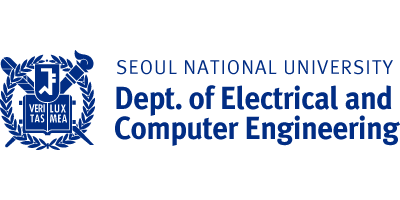Professor says, “There is a lack of experts in the field of semiconductors… The solution that SNU found is…” (The Donga Ilbo, 2022.05.02)
The semiconductor industry constantly complains of a shortage of experts, but the situation is hardly improving, the reasons being the number of students majoring in semiconductors not increasing significantly, and the unfolding of the global war to secure semiconductor experts in the era of advanced technologies such as self-driving cars, where the importance of semiconductors is increasing.
With such a situation in place, the Department of Electrical and Computer Engineering at SNU decided to newly establish the “interdisciplinary major in system semiconductor engineering for AI” in March 2020 to produce 80 additional semiconductor majors each year. It is not sufficient to solve the manpower shortage issue, but SNU, which produced 20~30 semiconductor majors each year, is now able to produce nearly 4 times as many majors. We met with Hyuk-Jae Lee, Chair of the Department of Electrical and Computer Engineering, who supervised the establishment of the said major, and heard about the contents of the education curriculum and future plans for the major.
Hyuk-Jae Lee, Professor at SNU Department of Electrical and Computer Engineering
- Which students can participate in the interdisciplinary major in system semiconductor engineering for AI?
Students who are interested in majoring in semiconductors in addition to their main major can participate. SNU students who have completed at least two regular semesters of the undergraduate program and have a GPA of 2.7 or higher are eligible. The concept is similar to having a double major, but there is a difference. Students who double major in electrical and computer engineering are required to take necessary core courses, but students in the interdisciplinary program take a curriculum tailored to the understanding of semiconductors.
The curriculum was formulated to familiarize students with theories and practices regarding semiconductors, with the goal of producing additional semiconductor experts to solve the manpower shortage problem. For example, is only possible to graduate after completing two out of the three practical courses: AI system design project, AI semiconductor circuit design project, and the AI semiconductor device design project. Students from different majors can design AI systems together, and share relevant knowledge, while simultaneously working on their main majors. Students majoring in automobile engineering, while learning about autonomous driving chip development, can learn information related to automobiles besides internal combustion automobiles, and can also share the knowledge with students from other majors through collaboration. 
Recruitment poster for the interdisciplinary major in system semiconductor engineering for AI
- It was heard that the main goal is to produce students majoring in artificial intelligence semiconductors.
Semiconductors can be classified into memory semiconductors and non-memory semiconductors. Memory semiconductors, which Korea is known for, are tasked with storing data and processing them quickly. AI semiconductors, also called system semiconductors, are non-memory semiconductors, and it is a field that we must produce talented people for in the future.
The performance of AI semiconductors that will implement the algorithms is important for self-driving cars’ ability to arrive at the destination safely and avoid obstacles when the driver is not holding the steering wheel. To apply and develop this AI semiconductor technology in various industries, experts in this field must be abundant. However, this does not mean that the development of memory semiconductor personnel will be excluded, so I hope there is no misunderstanding.
- In addition to the regular curriculum, is there a program that allows students to participate in the interdisciplinary program to quickly understand semiconductors?
The “student intern research” program was created outside of the regular curriculum for the interdisciplinary program. This program, which is separate from the curriculum and is restricted to those participating in the interdisciplinary program, assigns collaborative research assignments to assist them in quickly understanding semiconductors.
For example, if the task is to develop a remote test supervision service, a feature that can detect the face of individual test takers and verify their identity, and detect the presence of restricted devices such as smartphones on the tables, will be implemented. If the task is to develop a solution to predict the amount of leftover food at a restaurant, team members will collaborate to implement the necessary algorithm and develop a solution that can determine the amount of leftover food in real-time with assistance from CCTV data. Since students participating in the student intern research program are those that voluntarily signed up for an extra-curriculum program, they are very enthusiastic. It is expected that through solving such assignments, the students will be able to acquire knowledge of semiconductors at a fast pace.
In addition, contests are held, and the winners are supported with academic subsidies, or with support for participation in excellent overseas societies’ events.
Students in the interdisciplinary major working on their practical assignments
- What are the plans and goals of the interdisciplinary major?
The program was more popular among the students than expected. In the first semester (first semester of 2020), 65 students applied and 40 were selected. The competition rate then was 1.63:1. In the second semester of 2022, the number of applicants increased to 136, and 38 were selected making the competition rate 3.58:1. The fact that the competition rate is maintaining an upward trend every semester is an encouraging achievement, and we plan to review whether it is possible to increase the quota.
With the increased number of students majoring in semiconductors, I hope that the number of professors that can guide semiconductor experts will also be increased. Even if additional semiconductor majors are recruited, it will be difficult to achieve results if there are not enough professors to guide and advise these students. There is a shortage of experts in the industrial sector, and the same goes for the academic sector. If there are students interested in the leadership course, we will actively support them as well.”

Hyuk-Jae Lee, Professor at SNU Department of Electrical and Computer Engineering
- -Are there anything else you would like to add?
In order to diversify semiconductor experts, it is necessary to raise interest in semiconductors among students. As cutting-edge technology develops, semiconductors will penetrate more deeply into our lives. They are already used even for tasks such as deciding the duration that rice will be cooked in a rice cooker and simple tasks such as opening and closing car windows. In fact, people are already experiencing the inconvenience of having to wait for more than a year for a newly released car to ship out due to the shortage of semiconductors.
Semiconductors are at the core of advanced technology such as autonomous driving which enables cars to drive to a destination without the driver having to hold the steering wheel. This is the reason why the competition to secure semiconductor experts is unfolding at a global level. I would like to request all walks of life increase their interest in semiconductors because the training of semiconductor experts is now a necessity, not an option, and it is a time when various government support will be required.
Source: https://ece.snu.ac.kr/community/news?bm=v&bbsidx=52446
Translated by: Do-Hyung Kim, English Editor of the Department of Electrical and Computer Engineering, kimdohyung@snu.ac.kr


